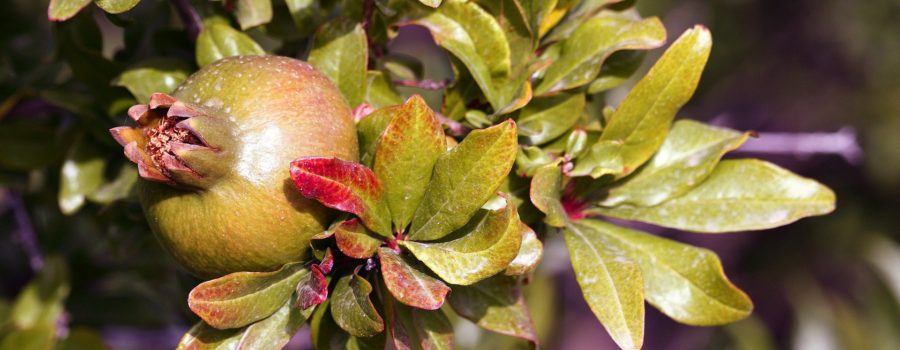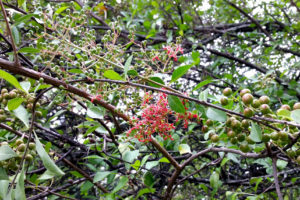This post will be the first of a series of seven. We are going to walk through God’s garden and consider its plants and flowers, its beauty and usefulness. We will see that different climates are needed to produce the varieties found therein, and will draw practical parallels applicable to our Christian life. Read carefully and enjoy the scent and beauty of God’s creativity.
Introduction
The Bible is not only a book. It is a library. Actually the word ‘Bible’ is taken from the Greek word Βιβλιοθήκη (bibliotheke), literally “book-repository”, from where the French word ‘bibliothèque’ (library) comes from. So a person can walk through it and find different books, each author having his own particular style.
As it has been observed, different books are available for different occasions, and different styles for different moods. The Bible offers seasonal variations with all their implications and applications; blue and cloudy skies are within its pages, as well as dry and rainy weather. Likewise, there is the calm of July and the storm of wintery blues. But in all its nuances there is a loving God with outstretched arms ready to help and assist, offering the warmth of His house in the wintery wind and the freshness of His courts in scorching summer. This is Him, and this is His heart.
The Song of all Songs
The book called ‘Song of Solomon’ or ‘Song of Songs’ is a beautiful and very inspirational masterpiece. It exemplifies the existing passion between the true lover and his Beloved. Its lines reverberate endearment and intimacy, inspiration and fervency; and its pages are full of flowers and fragrant perfumes. Therein a lover can get lost in a thousand dances and run over the hills and through the fields, each one being as pure as the heart of the Beloved.
In these writings—soaked in the poetry of love—the Beloved looks at the life of the passionate Christian and sees it as a sanctified garden, i.e., a garden set apart for Himself. Actually, the original place of fellowship between God and man was not a church building but a garden. And there was no coincidence there, for God is a garden Lover, and as such He wants our life to be an enclosed garden where he will stroll in our company and whisper words of tender love, and more so, where He will hear the poems and eulogies of the one He loves.
A garden enclosed is my sister, my spouse, a spring shut up, a fountain sealed” (Song of Solomon 4:12).
The words reflect faithfulness, freshness, and beauty. This garden, dedicated to Him, where flowers of passionate love bloom, is the best gift we can offer to our Beloved.
God’s intention
One of God’s purposes is to embellish our garden with all sorts of aromatic plants and colorful flowers—the one being as amazing as the other in fragrance and comeliness. But as we will see, to have such variety of flowers and a wide range of vegetation different climates are needed. This is one of the reasons the Beloved exposes us to all sorts of experiences and situations.
The multiplicity of circumstances crossing our life does not come at random. They are meticulously prepared and provided to enhance the beauty of our garden, for there are plants which grow only in hot and arid lands, others in high altitude where the climate is cold and the air thin, others are aquatic and need water in abundance, while others need heat and plenty of humidity. The wonder about this all is that Wisdom will provide all these climates for us, and this in view to achieve the ultimate purpose, which is, beauty and fragrance, usefulness and loveliness. Our part is to trust the Hand of providence and remain an enclosed garden, dedicated to Him and to His artistic creativity.
The private garden of God
After comparing the bride to an enclosed garden, a spring shut up, a fountain sealed (verse 12), the Beloved continues and describes the multiplicity of floras found in the garden. Verse 13 begins with these words: “Your plants are an orchard…”. The word used for orchard is פרדס pardês, from where the greek word paradeisos (paradise) comes from. It is a loan word taken from Old Persian, meaning a private garden, an exclusive place of delight and leisure. When Jesus told one of the criminals who was crucified with Him, “Assuredly, I say to you, today you will be with me in paradise” (Luke 23:43), He was actually saying, “today you will be with me in my private garden”.
We read in Revelation 2:7: “To him who overcomes I will give to eat from the tree of life, which is in the midst of the Paradise of God.”’ Now we know this tree is in Eden (Genesis 3:24), the private garden of God. Hence when the Beloved says to His bride, “Your plants are an orchard” (Song of Salomon 4:13), He is actually saying, “Your plants are a paradise”. No wonder Young’s Literal Translation uses the word: “Thy shoots a paradise”. This is what God wants us to be, a private garden, enclosed and dedicated to Him, a place of fellowship and delight, a paradise belonging to Him.
The beauty of variety
In this paradise, that is, in us collectively but also individually, God wants to produce a multiplicity of plants for elegance, usefulness, perfumes, incense, fruitfulness and refreshing.
Your plants are an orchard of pomegranates with pleasant fruits, fragrant henna with spikenard, spikenard and saffron, calamus and cinnamon, with all trees of frankincense, myrrh and aloes, with all the chief spices—a fountain of gardens, a well of living waters, and streams from Lebanon” (Song of Solomon 4:13–15).
What a description! What pleasantness and charm! What freshness and attractiveness! This is nothing less than the vestibule of heaven.
The pomegranate
The first plant listed in the description of the bride is the pomegranate. It is one of the seven species (shivat haminim) representing the product of the Promise Land (Deuteronomy 8:8). It thrives in the normal Mediterranean climate, i.e., in the common weather condition of the region. This is one of the reasons we should not despise the ordinary demands and responsibilities of everyday life. When the ordinary is handled with grace and love it yields such ‘granates’ as dignity and comeliness, loveliness and healthiness, strength and vitality, and surely, the exquisite taste of usefulness. To despise the common is to deprive our garden of pomegranates, a fruit so pleasant to the Beloved.
Since ancient times the pomegranates have been used as a symbol of fertility and life, and recent research has brought to light the remarkable health benefits its grains (granates) provide.
Since the flower remains partly on the fruit, the pomegranate is also highly ornamental. No wonder it was used to adorn the hem of the robe worn by the high priest (Exodus 28:33). There were also four hundred pomegranates made of bronze decorating the two bowl-shaped capitals located on top of the two pillars in the entrance of Salomon’s temple (1 Kings 7:42). All this demonstrates the twofold provision the pomegranate offers, namely, practicality and aesthetic, usefulness and beauty. This and more the common life can generate in the garden of a lover.
If you think this post can help somebody else you can share it with the options presented bellow.













